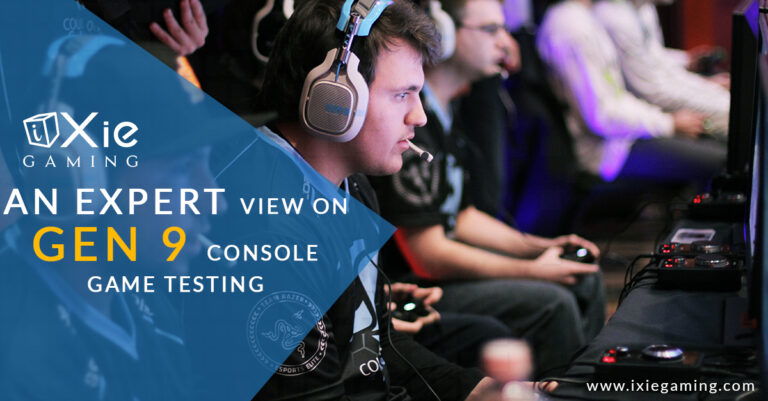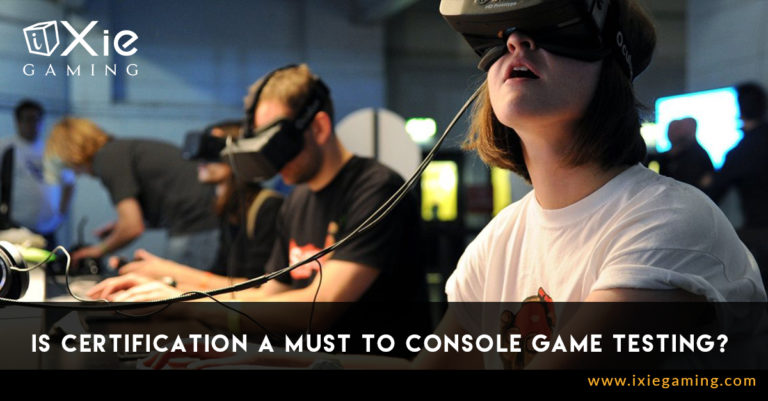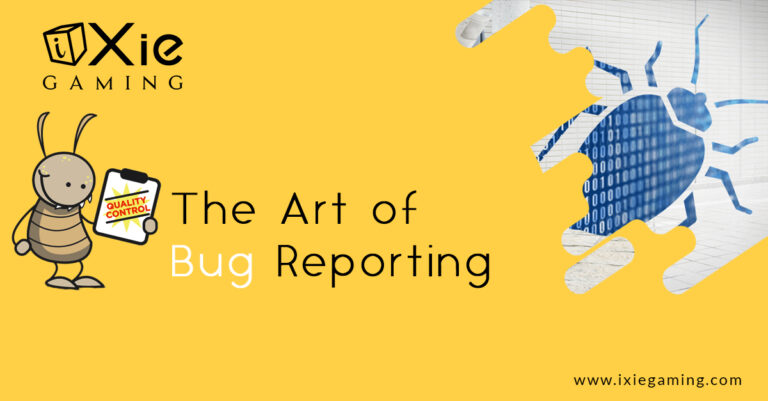Quality assurance (QA) is essential for a game’s success. Releasing a game with bugs frustrates players, leads to negative reviews, and can result in lost sales.
Outsourcing Game QA to experts can make a big difference. These professionals are skilled at finding and fixing bugs, providing an objective perspective, and using rigorous testing methods. This allows your internal team to focus on creating amazing game experiences while ensuring your game is polished and ready for players.
Finding the right QA partner is crucial. In this blog, we’ll guide you through the key steps to choosing the perfect QA partner, ensuring your game reaches its full potential and captivates your players.
QA Partner Checklist
Before you start searching, it’s important to know what your game needs from a QA partner. Use this checklist to identify your requirements and ensure a successful partnership:
- Scope of Testing Determine what kind of testing you need. Is it basic functionality checks, compatibility testing across various devices, performance optimization, or localization for different regions?
- Platforms Identify where your game will be played. Is it on PC, specific consoles, mobile devices, or a combination? Each platform has its unique aspects, so your QA partner needs to be experienced with the ones you’re targeting.
- Target Audience Know who your players are. Different demographics have different expectations. For example, a children’s game needs different testing than a hardcore MMO.
- Budget Be clear about your budget. QA services cost money, so knowing your budget helps you find a partner that fits within your financial limits.
- Timeline Plan when you need QA to start. Outline your development milestones and release dates to determine when you’ll need QA support and how much time they’ll have to do their work.
After understanding your QA needs, you can begin looking for the right partner using these criteria.

Criteria for Finding Your QA Partner
You’ve got your game plan ready; now it’s time to find the perfect team to make your vision a reality. The right QA partner can turn a buggy mess into a polished masterpiece. So, what qualities make a QA partner the best choice?
Experience and Expertise
Think of it like picking a sports team – you want a group with a winning record. Look for QA partners who have a proven track record in game testing, especially in your game’s genre or on the platforms you’re targeting. They’ll know the common issues and be better at finding hidden problems.
Testing Methodologies
Every QA team has their own way of working. Ask about their testing processes and the tools they use. Do they follow industry best practices? Are they flexible enough to adapt to your specific game and requirements? A rigid approach might not be the best fit for your unique project.
Team Composition
Check out their roster. Do they have dedicated testers for different platforms (PC, console, mobile) and different types of testing (functional, compatibility, performance)? A diverse team can handle a wider range of challenges.
Communication and Reporting
You need a team that keeps you informed. How often will they provide updates? What kind of reports can you expect – detailed bug reports, progress summaries, etc.? Clear and consistent communication is vital for smooth collaboration.
Flexibility and Scalability
Game development is rarely straightforward. Your QA partner should be able to adapt to changes in your project scope or timeline. Can they increase or decrease their resources as needed? A flexible team is a valuable asset.
Cultural Fit
This might sound minor, but it’s important. Do you get along with the QA team? Do you feel comfortable communicating with them? A good working relationship built on trust and understanding makes collaboration much easier.
By carefully evaluating these criteria, you’ll be well on your way to finding a QA partner who truly understands and elevates your game.
QA Partner Due Diligence
You have your criteria in hand; now it’s time to test potential partners and find the best match. This goes beyond just meeting requirements; it’s about discovering a team that really understands your game and can enhance its quality.
Request for Proposals (RFP)
Think of this as your scouting report. Create a detailed RFP that spells out your game, your needs, and your expectations. Invite potential QA partners to submit their proposals, showcasing how they’d tackle your project like seasoned pros.
Conducting Interviews
It’s not enough to just read their stats on paper – you need to see how they play the game. Interview your shortlisted QA partners. Ask about their past successes, their testing strategies, and how they handle communication. Get a feel for their personalities and whether they’d be a good fit for your team’s dynamic.
Checking References
Don’t just take their word for it. Talk to other game developers who have worked with them. Ask for honest feedback on their experience. Were deadlines met? Did they uncover critical issues? Did they communicate effectively? References can provide invaluable insights that you won’t find in a proposal.
By conducting thorough vetting, you’ll gain a deeper understanding of each QA partner’s strengths, weaknesses, and overall compatibility with your project. This knowledge will be your compass as you make the final decision.

Making Your QA Partner Decision
You’ve done your research and considered all your options. Now it’s time for the big decision – picking your QA partner. This is where your hard work really matters.
Weighing Options
Dust off those proposals and interview notes. Compare them side-by-side. Who has the strongest experience in your game’s genre? Who has the most adaptable testing methods? Who seems the most eager to collaborate and communicate openly? Evaluate the strengths and weaknesses of each contender.
Contract Negotiation
This isn’t just about signing on the dotted line. It’s about forging a partnership. Carefully review the contract terms. Does the payment structure work for you? Are the deliverables clearly defined? Is the timeline realistic? Negotiate for terms that benefit both parties.
Selecting a QA partner is like choosing a key player for your team. They can make a huge difference. Take your time, think it through, and trust your instincts. The right partner won’t just find and fix bugs; they’ll become a crucial part of your game development process.
Conclusion
Choosing the right QA partner is crucial for creating a flawless gaming experience. They do more than just find bugs; they’re your co-pilots in making sure your game is top-notch. With the right team, you’ll catch issues early and enhance your game’s quality, leading to greater success in the market. Don’t leave your game’s success to chance – find your ideal Game QA service provider and deliver an unforgettable experience to your players.
What do you think about the importance of choosing the right QA partner? Have you had any good or bad experiences with QA teams? Share your thoughts in the comments below!
Frequently Asked Question:
A QA partner ensures that your game is free from bugs and provides a smooth experience for players. They bring expertise, objective perspectives, and rigorous testing methods that help in identifying and fixing issues, allowing your internal team to focus on creating a great game.
When determining the scope of testing, consider the following:
- Basic functionality checks
- Compatibility testing across various devices
- Performance optimization
- Localization for different regions
Identify the platforms your game will be played on, such as PC, specific consoles, or mobile devices. Look for QA partners who have proven experience and success in testing games on those specific platforms.
Different demographics have different expectations and preferences. Knowing your target audience helps ensure that your QA partner can test the game in ways that are relevant to your players’ needs and expectations.
Being clear about your budget helps you find a QA partner that fits within your financial limits. It ensures that you get the best value for your money without compromising on the quality of testing.






